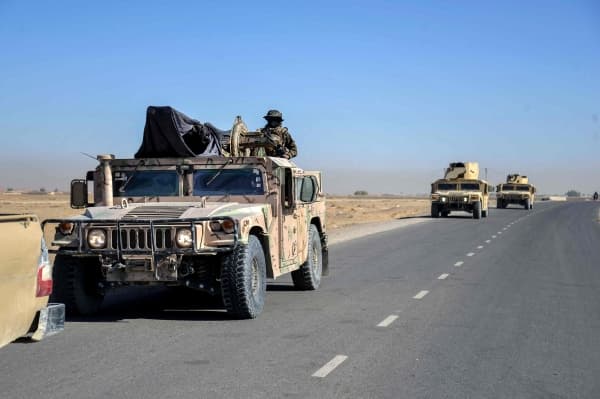We're loading the full news article for you. This includes the article content, images, author information, and related articles.
Tensions between Afghanistan and Pakistan have escalated dramatically following deadly overnight clashes along their shared border, with conflicting reports on casualties from both sides.

Heavy fighting erupted along the Afghanistan-Pakistan border on Saturday night, October 11, 2025, marking a significant escalation in long-standing tensions between the two nations. Afghan authorities claim their forces killed 58 Pakistani soldiers in retaliatory operations, while Pakistan reported 23 of its troops died and asserted it killed over 200 Taliban fighters.
The clashes followed accusations by the Taliban-led government in Afghanistan that Pakistan had conducted airstrikes earlier in the week on its capital, Kabul, and a market in eastern Afghanistan. Pakistan has not officially claimed responsibility for these alleged airstrikes but has stated it carried out "retribution operations."
The border, known as the Durand Line, spans approximately 2,600 kilometres and has been a contentious point between Afghanistan and Pakistan since its demarcation. Afghanistan has never formally recognised the Durand Line as an international border. Relations have been particularly strained since the Taliban's return to power in Afghanistan in August 2021.
Pakistan has consistently accused the Afghan Taliban of harbouring the Tehreek-e-Taliban Pakistan (TTP), an Islamist militant group responsible for a surge in insurgent attacks within Pakistan, especially in the Khyber Pakhtunkhwa region. The TTP, which shares an ideology with the Afghan Taliban, has reportedly been responsible for over 2,500 deaths in Pakistan over the past four years. Kabul, however, denies these allegations, asserting that the issue of the TTP is an internal matter for Pakistan.
According to the Taliban government's chief spokesman, Zabihullah Mujahid, Afghan forces launched "retaliatory and successful operations" along the border, capturing 25 Pakistani army posts and inflicting significant casualties. Mujahid claimed 58 Pakistani soldiers were killed and 30 wounded, with Afghan forces seizing weapons and ammunition. He also stated that nine Afghan soldiers were killed and 16 wounded in the operations.
Conversely, Pakistan's military reported that 23 of its soldiers were killed and 29 wounded. Pakistan also claimed its retaliatory strikes killed over 200 "Taliban and affiliated terrorists" and dismantled terrorist training camps. Pakistani security officials indicated that the exchange of fire occurred at more than six locations along the border.
The escalating clashes have led to the closure of key border crossings, including Torkham and Chaman, disrupting trade and raising concerns about civilian safety and regional stability. International bodies and nations such as Qatar, Saudi Arabia, and Iran have called for restraint and dialogue to de-escalate the situation. Analysts warn that continued escalation could draw in neighbouring countries and destabilise South and Central Asia.
The exact casualty figures remain disputed, with both sides providing significantly different numbers. Independent verification of these figures has not yet been possible. Pakistan has not confirmed the full extent of its losses as claimed by Afghanistan. The specific targets and outcomes of Pakistan's alleged airstrikes in Kabul earlier in the week also remain unconfirmed by Islamabad.
The international community will be closely watching for further diplomatic interventions and any potential for de-escalation. The ongoing visit of Afghanistan's Foreign Minister Amir Khan Muttaqi to India, the first high-level trip since the Taliban took power, adds another layer of geopolitical complexity to the situation. The resolution of the TTP issue remains central to any lasting peace between Afghanistan and Pakistan.
Keep the conversation in one place—threads here stay linked to the story and in the forums.
Sign in to start a discussion
Start a conversation about this story and keep it linked here.
Other hot threads
E-sports and Gaming Community in Kenya
Active 9 months ago
The Role of Technology in Modern Agriculture (AgriTech)
Active 9 months ago
Popular Recreational Activities Across Counties
Active 9 months ago
Investing in Youth Sports Development Programs
Active 9 months ago